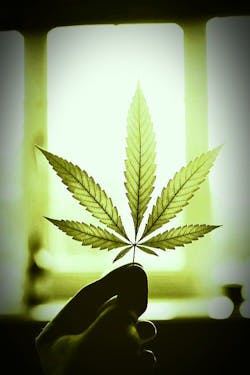This morning I paid special attention to a friend’s Facebook post. Nothing particularly unusual, however, her message was loud and clear, “Living with mental illness does not discredit your advice or feelings, especially if that person is in treatment.” Her hashtags read: #endthestigma #wiredwrong #mentalhealthawareness #stillaperson #stillvalid #stillworthsomething #depression #anxiety #bigpharmakills
She went on to say, “Things I’m going through right now because weed is illegal, MM (medical marijuana) is a luxury for the rich, and Trulieve has a monopoly in FL and…. I can’t find any in Orlando.” Her post ended with an apology to her friends and family who have to interact with her at “this time.”
According to the WHO, depression is one of the world’s most serious public health problems affecting over 350 million people and is a leading cause of disability. Yet, it remains a mystery as to why it occurs. Worse, some people even think it’s merely made up or that it’s just sadness. Part of why it’s such an enigma is because depression varies from person to person — as is the response to treating it — as is the response to using cannabis as an alternative form of treatment.
Just today, a new study published in Nature Genetics has identified 44 genetic variants that can increase the risk of developing major depression. The researchers analyzed the genes of almost 500,000 people and claims everyone carries at least some of these variants. While some will suffer, and some will not, the jury is still out for those that wish to consume cannabis as a relief.
Researchers found that just one drag of cannabis can alleviate depression. According to another recent study, cannabis users reported that their symptoms of depression halved as a result of medical cannabis use, while symptoms of anxiety and stress were reduced by 58 percent. The team found that just one puff of high-CBD, low-THC cannabis was enough to lower depressive symptoms, while two puffs of any form of cannabis were tied to a reduction in anxiety. For symptoms of stress, at least 10 puffs of high-CBD, high-THC cannabis produced the greatest benefit.
For my own research purposes, I recently contacted a local cannabis clinic about their services and protocol for being treated. I was told after making an appointment to complete and return several forms, along with $250 (cash only) for a “free consultation” with the doctor. A $50 credit would be applied for Veterans. I was also instructed to bring a check or money order payable to Florida Department of Health for $75 and my FL Drivers License or ID. (See my blog entitled, High-hopes in the Sunshine State.)
Seems simple enough…if you have cash.
According to CareerBuilder, 78 percent of full-time workers live paycheck to paycheck, up from 75 percent last year. Overall, 71 percent of all U.S. workers said they’re now in debt, up from 68 percent a year ago. Then, of course, once you get your prescription card (
So what’s a depressed person who wants cannabis but can’t get it to do…besides vent on social media? Resort to alcohol? Opioids? Suicide? Move out of state? All terrible options, I’m sure you’d agree.
Cannabis is one of the hottest topics nowadays and companies not only from the US, but from the rest of the world, are interested in hiring professionals who possess industry-specific knowledge. There’s a growing demand for cannabis courses in universities, at conferences, and in our medical laboratories. Whether it’s testing for harmful pesticides, chemicals, molds, yeast — even E.Coli and salmonella — testing CBD versus THC — and everything in-between; there is a need to research this medicinal plant further. And quicker.

